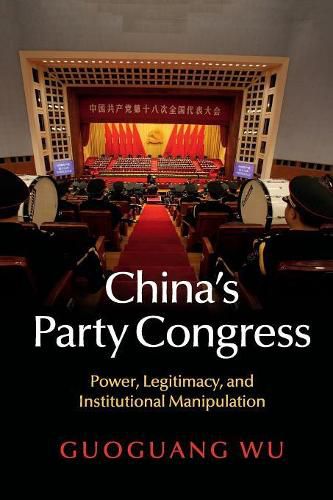Readings Newsletter
Become a Readings Member to make your shopping experience even easier.
Sign in or sign up for free!
You’re not far away from qualifying for FREE standard shipping within Australia
You’ve qualified for FREE standard shipping within Australia
The cart is loading…






Nominally the highest decision-making body in the Chinese Communist Party, the Party Congress is responsible for determining party policy and the selection of China’s leaders. Guoguang Wu provides the first analysis of how the Party Congress operates to elect Party leadership and decide Party policy, and explores why such a formal performance of congress meetings, delegate discussions, and non-democratic elections is significant for authoritarian politics more broadly. Taking institutional inconsistency as the central research question, this study presents a new theory of ‘mutual contextualization’ to reveal how informal politics and formal institutions interact with each other. Wu argues that despite the prevalence of informal politics behind the scenes, authoritarian politics seeks legitimization through a combination of political manipulation and the ritual mobilization of formal institutions. This ambitious book is essential reading for all those interested in understanding contemporary China, and an innovative theoretical contribution to the study of comparative politics.
$9.00 standard shipping within Australia
FREE standard shipping within Australia for orders over $100.00
Express & International shipping calculated at checkout
Nominally the highest decision-making body in the Chinese Communist Party, the Party Congress is responsible for determining party policy and the selection of China’s leaders. Guoguang Wu provides the first analysis of how the Party Congress operates to elect Party leadership and decide Party policy, and explores why such a formal performance of congress meetings, delegate discussions, and non-democratic elections is significant for authoritarian politics more broadly. Taking institutional inconsistency as the central research question, this study presents a new theory of ‘mutual contextualization’ to reveal how informal politics and formal institutions interact with each other. Wu argues that despite the prevalence of informal politics behind the scenes, authoritarian politics seeks legitimization through a combination of political manipulation and the ritual mobilization of formal institutions. This ambitious book is essential reading for all those interested in understanding contemporary China, and an innovative theoretical contribution to the study of comparative politics.